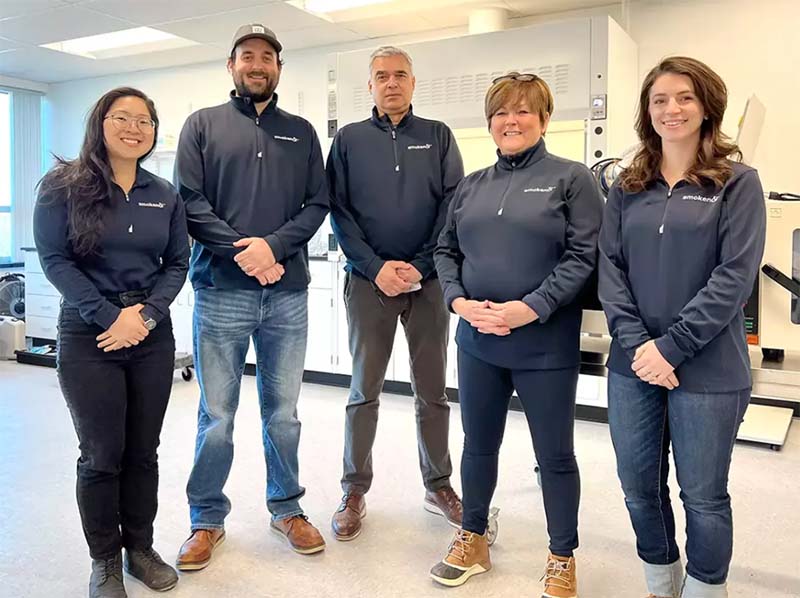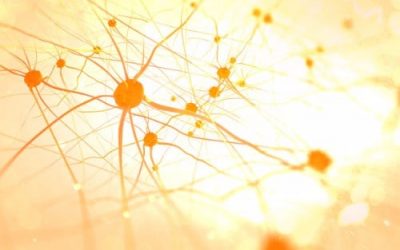What is HNPP?
Hereditary Neuropathy With Liability To Pressure Palsies (HNPP) is a peripheral nerve disorder inherited in an autosomal dominant pattern. Affecting 2 to 5 per 100,000 individuals, HNPP affects the nerves connecting the brain and spinal cord to the muscles, as well as sensory cells that detect temperature, touch, and pain. Hereditary Neuropathy With Liability To Pressure Palsies is also known as:
- Compression Neuropathy
- Entrapment Neuropathy
- Familial Pressure Sensitive Neuropathy
- Hereditary Pressure Sensitive Neuropathy
The peripheral nerves of people affected with HNPP are highly sensitive to pressure. This hereditary neuropathy is caused by mutations in the PMP22 gene. Mutations in this gene most likely affect myelin, the substance that protects nerve cells. Increased nerve sensitivity to pressure can occur when the myelin covering is disrupted.
Common HNPP Symptoms: Symptoms of Hereditary Neuropathy With Liability To Pressure Palsies usually begin during adolescence or early adulthood, with some individuals developing symptoms in late adulthood. Severity of symptoms vary. Some people never experience symptoms, while other sustain enduring disability. Patients can experience:
- Recurrent episodes of numbness, tingling, and/or loss of muscle function.
- Pain in the limbs, especially the hands.
- Carpal tunnel syndrome.
- Permanent muscle weakness or loss of sensation.
- Difficulty writing, opening jars, and fastening buttons.
- Difficulty walking, climbing stairs, and driving.
An HNPP episode results from disturbances in a single peripheral nerve, but any peripheral nerve can be affected. These episodes can last from several minutes to several months, with most patients experiencing complete recovery. However, repeated episodes can predispose a patient to permanent muscle weakness or loss of sensation. The most common sites for episodes involve nerves in wrists, elbows, and knees. Fingers, shoulders, hands, feet, and the scalp can also be involved in an HNPP episode. Currently, there is no cure for HNPP. While the disease does not affect life expectancy, it can greatly diminish quality of life.
If you or a family member have been diagnosed with HNPP, please consider joining the Global Registry For Inherited Neuropathies (GRIN). HNF’s registry collects essential clinical and genetic information on patients diagnosed with the various forms of hereditary neuropathies in order to advance therapy development for HNPP. By completing your profile, your information will be utilized to advance research and clinical trials that could lead to future treatments and cures for HNPP.
For more information on HNPP, visit the Genetics Home Reference: a service of the U.S. National Library of Medicine.
HNPP MATCH
$16,000 x 2 = $32,000
Thank you, Westerkamp family for their generous donation to HNPP research!
What will it fund?
HNF is leading the charge in HNPP research by creating cell-based models (IPSc) from patients’ samples to test potential therapeutic drugs already FDA-approved. In partnership with Rarebase, HNF will screen a compound library of thousands of FDA-approved drugs and novel drugs, for HNPP.
Why are we doing this?
Our aggressive approach will enable us to immediately test any hits found with our HNPP cell-based models.
About the Westerkamps
HNF met the Westerkamp family at the Patient-Centered CMT / HNPP Pain Summit. Michiel (dad) and Andy (son) Westerkamp both have HNPP and own Real Isolates, a leader in the cannabinoid industry. Their team has developed a commercially viable method to harvest cannabinoids and terpenes from cannabis smoke.
These patent-pending formulations are called Smokenol and are rich in common and rare cannabinoids and enable a new category of oral, topical, and inhaled cannabis therapies.
We Care About Research for Hereditary Neuropathy with Liability to Pressure Palsies (HNPP)!
HNPP is the second most common form of CMT/IN and may affect approximately 15,000 in the USA. Help us find a cure today!
Hereditary Neuropathy Foundation Announces Patient-Centered CMT/HNPP Pain Summit
HNF is proud to announce that our annual CMT Summit will include the HNPP community Friday, November 3, 2017, in Cambridge, Massachusetts.
HNPP Study Available for HNF Members
This study, which aims to uncover the rather unrecognized symptoms of Hereditary Neuropathy with Liability to Pressure Palsy (HNPP)




